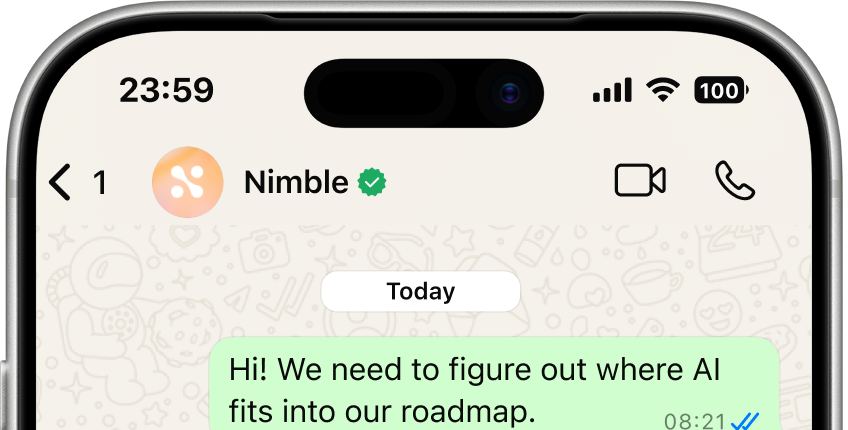The main challenges in healthcare right now
We've been active in the healthcare industry for a good couple of years now. We first got into the space early 2019, when we realized we could raise the bar for patient experiences pretty much everywhere. And then COVID-19 launched telehealth to the forefront, seeing huge investments, but also massive turnover. Here's what we feel are the most pressing challenging facing the industry.
Staff shortages
Burnout and turnover are plaguing the industry; hospitals especially have experienced an exodus of personnel in the wake of COVID-19. Put plainly, we don't have enough people to take care of our patients. The quality of care will inevitably suffer. Hence, we need to manifest some much-needed efficiency gains by streamlining workflows and reducing administrative burdens.
Data floods
Healthcare professionals (HCPs) spend so much of their time just inputting data into EHRs. This labor-intensive overhead is taking precious time away from carers to help more patients. We need to invest in the digital orchestration of patient care, and the interoperability and standardization (like FHIR, for instance) of data. We need to break apart the data silos.
Health equity
Equal access to healthcare should be a given. Unfortunately, this is very much not the case in many parts of the world. Lack of transportation, long waiting times, high costs, exploitative insurance, ableism, discrimination, transphobia… While we can't fix society, we can however leverage technology people are already using to better connect them with caregivers.
Patient experience
It's clear that the demand for healthcare has far exceeded its supply. At the same time, patients are expecting a similar, fulfilling user experience compared to what they're getting elsewhere. Think of online shopping or banking as an example. This means taking telehealth, clinical pathways and asynchronous care to the next level, so we can drive better outcomes for patients.
Patient retention
Subsequently, if we fail to create better patient experiences, patients won't stick around either, further hurting the viability of healthcare organizations. And regardless of what happens in the next few years, healthcare will become more patient-led. Simply put, this implies that virtual care solutions also need to be engaging, empowering, and rewarding for patients.
Our objectives in healthcare as a digital product studio
Making patient care more accessible
Our core strength is being able to bring functional solutions to market at breakneck speeds. This is largely due to our multidisciplinary teams, our agile approach, and the fact that we can operate outside the constraints of our clients’ organizations. Additionally, we've built Healthblocks. It's a plug-and-play software platform for piecing together compliant virtual care solutions. A great use case for Healthblocks, is the virtual hospital we're building for Belgium's most innovative hospital, AZ Maria Middelares. Coming soon to an app store near you!

Making patient care more productive
Dealing with the productivity or efficiency challenge, means having a strong, connected backbone. Disconnected point solutions aren't going to be effective, unless they're vertically integrated. Data needs to flow freely, and we can't have duplication of efforts. Integrating with an EHR is a must. At the same time, building huge monoliths from scratch is an even worse way to go about it. That's why we'll almost always recommend composable architecture. API-first, using best-in-class point solutions, ideally with a web-first or at least cross-platform approach.

Making patient care more engaging
Addressing patient experience and retention challenges means building engaging user experiences. And patient engagement is a necessity to improve the quality of care and enrich data for clinicians, which is ultimately what drives patient outcomes. An example of this, is the patient experience we've built for Dr. Eric Lim and his team. As a thoracic surgeon at the Royal Brompton hospital in London, his objective is to improve the quality of life for lung cancer and mesothelioma patients. Explore the full project here.

Conclusion
We've positioned ourselves to be an enabler of digital transformation in an industry that really needs it right now, and that's healthcare. We want to help these organizations break down data silos, help them design open health systems, push interoperability forward, and ultimately drive patient outcomes. And we feel that, as innovators, we have a responsibility to take as well. Because we can help prevent the shortage of staff become an even bigger issue a few years from now; together with our partners, we can create more accessibility, productivity, and engagement in healthcare.






